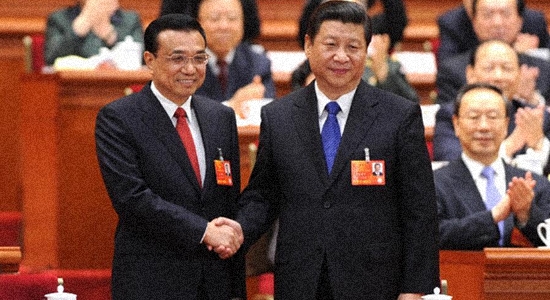
Many of Li Keqiang’s mourners are doubtless sincere and are not, like some, lamenting his loss mostly as a means of protest against the government. But many others in China are loathe to offer even a pro forma expression of regret that Li is no longer among the living.
After all, he was a high-ranking official in the Chinazi state, second in power only to Xi Jinping. The fact that he favored less interference with markets than Xi doesn’t remove or compensate for his complicity in that state’s most vicious policies.
In one of several reports on Li’s death, Radio Free Asia notes (October 30, 2023) that Uyghurs will remember Li Keqiang for repression.
He played an instrumental role in the Chinese government’s crackdown on the predominantly Muslim Uyghurs and other Turkic minorities in Xinjiang that culminated in the mass detentions of an estimated 1.8 million people in internment camps in 2017 and 2018, two experts on the region said.
Other flagrant right abuses included the torture of detainees, forced abortions and sterilizations of Muslim women, and forced labor that the United States and other nations have identified as genocide.
Swedish journalist Jojje Ollson stresses that Li was no “man of the people,” one of the encomiums heaped on Li’s memory along with the flowers before the government acted to suppress such effusions. As revealed in leaked documents about the Chinese government’s systematic assault on the Uyghurs and others in Xinjiang, Li was one of those who called for this assault.
Tibetans don’t think Li was so swell either. “Even though the Chinese policies in Tibet became exceptionally restrictive and repressive under Xi Jinping’s leadership,” says Bawa Kelsang Gyaltsen, a representative of the Office of Tibet in Taiwan, “there has not been a single Chinese official who has been vocal enough to talk about these atrocities and repression.”





